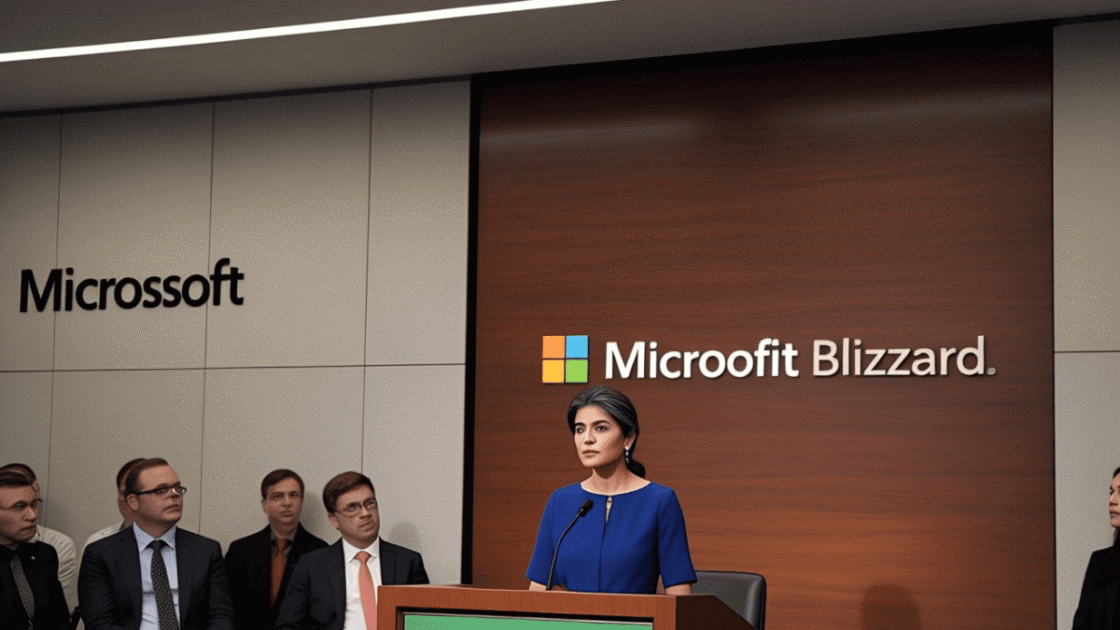The U.S. Federal Trade Commission (FTC) has officially dropped its legal challenge against Microsoft’s $69 billion acquisition of Activision Blizzard, marking a significant milestone in the tech and gaming industry.(Reuters)
Table of Contents
- Introduction
- Background of the Acquisition
- FTC’s Legal Challenge
- Court Rulings and Appeals
- FTC’s Decision to Drop the Case
- Implications for the Gaming Industry
- Reactions from Stakeholders
- Future Outlook
- Frequently Asked Questions (FAQs)
Introduction
In a landmark decision, the U.S. Federal Trade Commission (FTC) has officially dropped its case against Microsoft’s $69 billion acquisition of Activision Blizzard. This move effectively ends a prolonged legal battle that had significant implications for the tech and gaming industries. The acquisition, which was finalized in October 2023, now stands unchallenged by U.S. regulators.
Background of the Acquisition
- Announcement: In January 2022, Microsoft announced its intention to acquire Activision Blizzard for $68.7 billion, aiming to bolster its position in the gaming industry.(Wikipedia)
- Strategic Importance: The deal was set to bring popular franchises like Call of Duty, World of Warcraft, and Candy Crush under Microsoft’s umbrella, enhancing its Game Pass subscription service and cloud gaming capabilities.(Wikipedia)
- Regulatory Scrutiny: Given the size and potential market impact, the acquisition faced scrutiny from regulators worldwide, including the FTC, European Commission, and UK’s Competition and Markets Authority (CMA).
FTC’s Legal Challenge
- Initial Lawsuit: In December 2022, the FTC filed a lawsuit to block the acquisition, citing concerns that the deal would harm competition in the gaming industry, particularly in console, subscription, and cloud gaming markets.(Reuters)
- Arguments: The FTC argued that Microsoft could potentially withhold Activision’s games from rival platforms or degrade their quality, thereby lessening competition and harming consumers.(The Verge)
- Temporary Injunction: The FTC sought a preliminary injunction to prevent the deal from closing while the legal proceedings were ongoing.(@EconomicTimes)
Court Rulings and Appeals
- District Court Decision: In July 2023, U.S. District Judge Jacqueline Scott Corley denied the FTC’s request for a preliminary injunction, stating that the agency failed to demonstrate that the merger would substantially lessen competition.(Reuters)
- Appeals Court Ruling: On May 7, 2025, the 9th U.S. Circuit Court of Appeals upheld the lower court’s decision, concluding that the FTC had not shown a strong likelihood of success on the merits of its claims.(The Verge)
FTC’s Decision to Drop the Case
- Official Withdrawal: On May 22, 2025, the FTC announced it would drop its legal challenge against Microsoft’s acquisition of Activision Blizzard, stating that continuing the case was not in the public interest.(Reuters)
- Finalization of the Deal: With the FTC’s withdrawal, Microsoft’s acquisition, which had already been completed in October 2023, now faces no further legal obstacles from U.S. regulators.(Reuters)
Implications for the Gaming Industry
- Market Consolidation: The acquisition solidifies Microsoft’s position as a dominant player in the gaming industry, potentially influencing market dynamics and competition.
- Game Availability: Microsoft has pledged to keep popular Activision titles available on rival platforms, aiming to alleviate concerns about exclusivity and access.(Reuters)
- Innovation and Investment: The merger could lead to increased investment in game development and innovation, benefiting consumers with a broader range of gaming experiences.
Reactions from Stakeholders
- Microsoft’s Response: Microsoft expressed satisfaction with the FTC’s decision, emphasizing its commitment to fostering competition and providing gamers with more choices.
- Activision Blizzard’s Statement: Activision Blizzard welcomed the conclusion of the legal proceedings, looking forward to the opportunities the merger presents.
- Industry Analysts: Experts view the FTC’s withdrawal as a significant development, potentially setting a precedent for future tech industry mergers and acquisitions.
Future Outlook
- Regulatory Landscape: The FTC’s decision may influence how future mergers in the tech industry are approached and regulated, possibly prompting a reevaluation of antitrust enforcement strategies.
- Gaming Industry Evolution: With Microsoft’s expanded portfolio, the gaming industry may experience shifts in content distribution, platform competition, and consumer engagement.
- Consumer Impact: Gamers can anticipate a more integrated gaming ecosystem, with potential benefits including enhanced cross-platform experiences and access to a wider array of games.
Frequently Asked Questions (FAQs)
Q1: Why did the FTC initially challenge Microsoft’s acquisition of Activision Blizzard?
The FTC was concerned that the merger would harm competition by potentially allowing Microsoft to withhold or degrade Activision’s games on rival platforms, thereby lessening consumer choice and innovation.(The Verge)
Q2: What led to the FTC dropping its case against Microsoft?
After losing in both district and appeals courts, the FTC determined that continuing the legal battle was not in the public interest, especially since the deal had already been finalized.(Reuters)
Q3: How does this acquisition affect gamers?
Gamers may benefit from increased access to Activision’s titles through Microsoft’s platforms, including potential additions to the Game Pass subscription service, enhancing value and variety.(Reuters)
Q4: Will Activision’s games become exclusive to Microsoft’s platforms?
Microsoft has committed to keeping popular Activision games available on multiple platforms, aiming to maintain broad accessibility and address antitrust concerns.
Q5: What does this mean for future tech industry mergers?
The FTC’s withdrawal may influence how future mergers are evaluated and challenged, potentially leading to more rigorous analyses and strategic considerations in antitrust enforcement.(Reuters)
